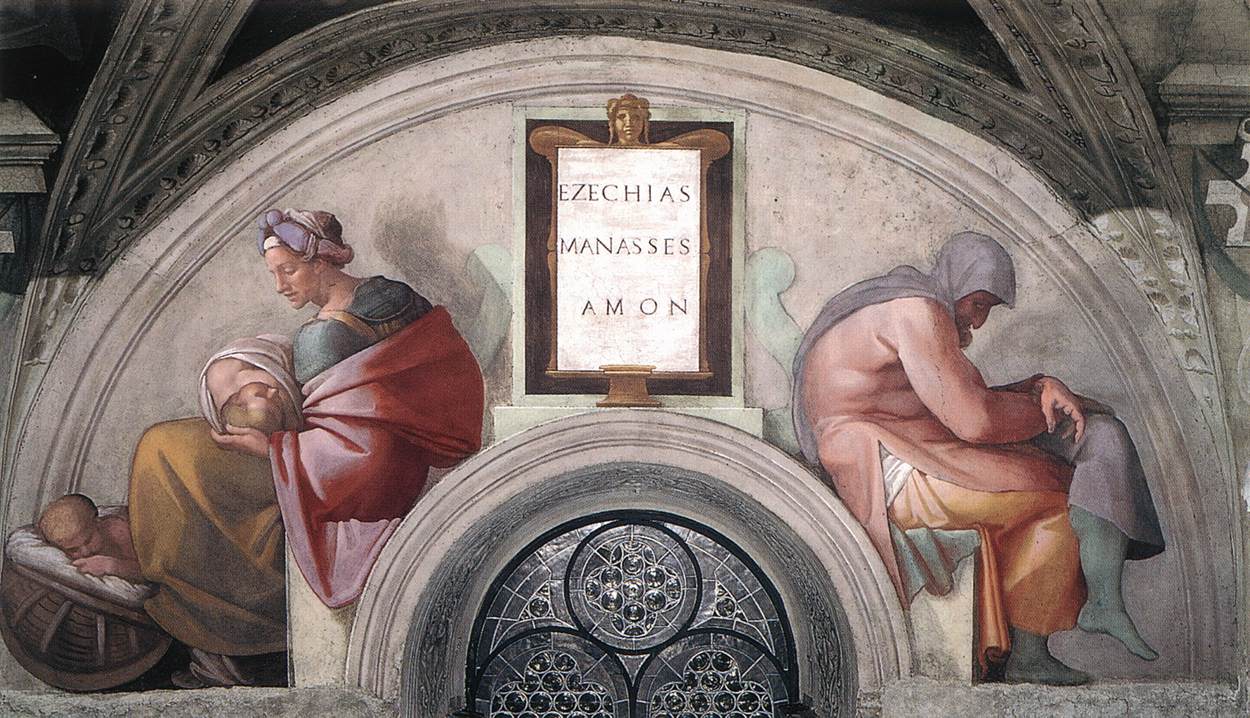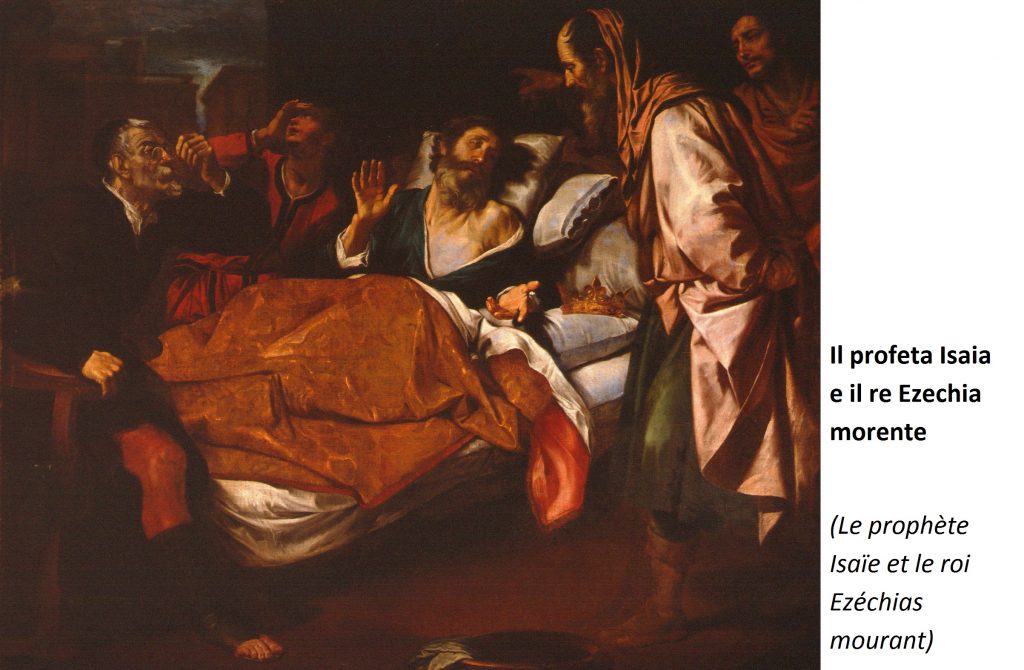
690 BC to 670 BC, Psalm 13: Decline of the Kingdom of Judea.
This site was first built in French (see www.147thgeneration.net). The English translation was mainly done using « google translation ». We have tried to correct the result of this translation to avoid interpretation errors. However, it is likely that there are unsatisfactory translations, do not hesitate to communicate them to us for correction.
(for that click on this paragraph)
Summary
This generation is from the years 690 BC to 670 BC
According to our count, this generation is the 13th generation associated with Psalm 13. It is in this Psalm 13 that we therefore find an illustration of the facts of this generation.
At this generation, the kingdom of Israel is forgotten. To this day we are still searching for the trace of the ten lost tribes exiled by Sennacherib. This generation is also that of the end of the reign of King Hezekiah for the kingdom of Judah and the beginning of the long reign of King Manasseh.
King Manasseh’s attitude no longer leaves any doubt as to the fate that will be in store for the kingdom of Judah.
Talk
Manasseh
At this generation, the kingdom of Israel is forgotten. To this day we are still searching for the trace of the ten lost tribes exiled by Sennacherib. This generation is also that of the end of the reign of King Hezekiah for the kingdom of Judah and the beginning of the long reign of King Manasseh.
The conduct of King Hezekiah had raised the spirits of his ancestors, King David. And thus make forget the fate of the kingdom of Israel in favor of the vexation encountered by the king of Syria as the psalm of the previous generation commemorates it.
The attitude of King Manasseh leaves no doubt about the fate of the kingdom of Judah:
- Manasseh [1] was twelve years old when he became king, and he reigned in Jerusalem fifty-five years, and his mother’s name was Hephzibah.
- And he did what was evil in the eyes of the Lord; like the abominations of the nations that the Lord had driven out from before the children of Israel.
Isaiah’s prophecy
This attitude explains the prophecy of Isaiah made to Hezekiah at the end of his life, so at the beginning of this thirteenth generation:
- At that time [2], Berodach-baladan the son of Baladan, the king of Babylonia ( – from there will come the attack that will be fatal to the kingdom of Judah – ), sent letters and a gift to Hezekiah for he heard that Hezekiah had been ill.
- And Hezekiah listened to them, and he showed them his entire treasure-house, the silver, the gold, the spices, and the good oil, and the entire house in which he kept his vessels, and everything that was found in his treasuries; there was nothing that Hezekiah did not show them in his palace and in his kingdom.
- And Isaiah the prophet came to King Hezekiah and said to him, « What did these men say, and whence did they come to you ( – As a result, it is likely that Isaiah knew the answer to his own question – ) ? » And Hezekiah said, « They have come from a distant country-from Babylonia. »
- And he said, « What did they see in your palace? » And Hezekiah said, « They saw everything that is in my palace. There was nothing that I did not show them in my treasuries. »
- And Isaiah said to Hezekiah, « Hearken to the word of the Lord.
- Behold a time will come when everything in your palace and what your forefathers have stored up, will be carried off to Babylonia; nothing shall remain, » said the Lord.
- And they will take [some] of your sons, who will issue from you, whom you will beget, and they will be officers in the palace of the king of Babylonia. »
This augury confirmed by the attitude of Manasseh from the beginning of his reign justifies the spite of David expressed in the psalm of this generation:

- To the conductor, a song of David.
- How long, O Lord? Will You forget me forever? …
- The fate that awaits the kingdom of Judah added to that of the kingdom of Israel suggests to David that the disgrace of the people of Israel is made to last.
- … How long will You hide Your face from me?
- As the LORD is doing to the kingdom of Judah.
- How long will I take counsel in my soul, having sorrow in my heart by day; how long will my enemy have the upper hand over me?
- In front of the attacks on the people of Israel which will not stop accumulating, how will David be able to console himself? While the enemies of the people of Israel will comfort each other with their power at each victory.
- Look and answer me, O Lord my God; enlighten my eyes lest I sleep the sleep of death.
- Lest my enemy say, « I have overwhelmed him »; …
- David, however, is ready to endure these attacks by the enemies of Israel provided they are not fatal to his people.
- … my adversaries will rejoice when I totter.
- But I trusted in Your loving-kindness, my heart will rejoice in Your salvation; I will sing to the Lord for He has bestowed [it] upon me.
- David, persuaded that his people will eventually be reconciled with the Lord, will once again sing his trust in God despite the horizon that is darkening.

[1] Melachim II – II Kings – Chapter 21, verses 1 and 2
[2] Melachim II – II Kings – Chapter 20, verses 12 to 18

